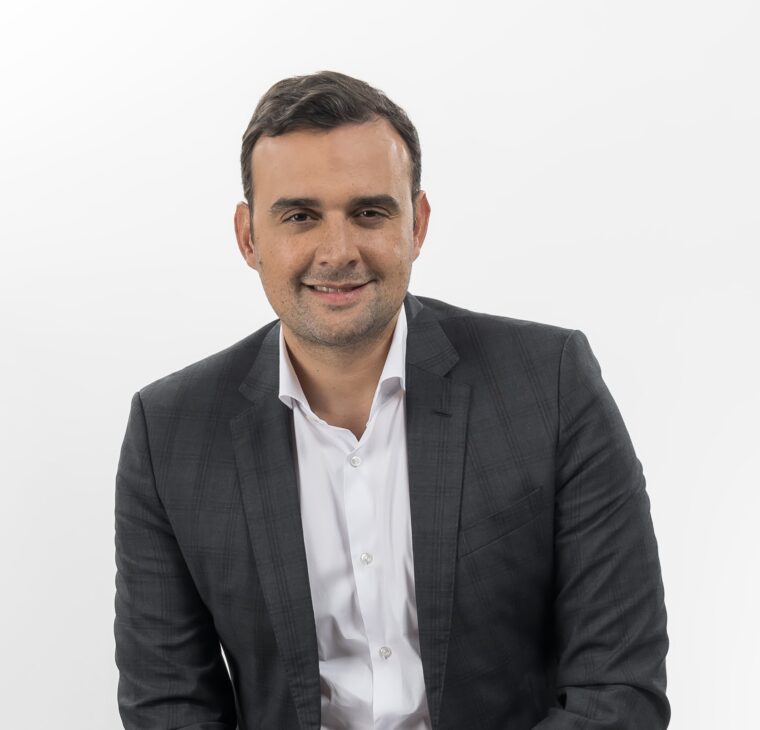As part of the partnership between the Portuguese Diaspora Council and Jornal de Negócios, Jonas Rolo, Senior Director of Strategic Procurement at Ooredoo Group and Councilor of the Middle East Regional Hub, was interviewed by Jornal de Negócios. In the interview, Jonas Rolo discussed his professional journey and identified competitive opportunities for Portugal, its economy, companies, and entrepreneurs in general.
1- What led you to leave Portugal?
After 15 years of professional experience in Portugal, I was given an irresistible challenge: Amazon proposed me to create the Corporate Procurement area for the entire EMEA region. Creating a whole new structure for 18 countries, in one of the best companies in the world, was irrefutable. After 3 years at Amazon, and with the mission accomplished, I was proposed a new challenge for similar functions, but now for a Multinational Telecommunications Company (Ooredoo) in Qatar. Once again, I accepted the challenge and, in addition to the Strategic Procurement functions, I am also responsible for several transformation projects. In the last 7 years, I have developed other activities related to entrepreneurship and Angel Investment: I am an investor and board member of several startups and also President in the Middle East of a Changer Club that is dedicated to Angel Investment and business growth in the Middle East.
2- What advantages or disadvantages did being Portuguese bring you?
I have worked directly with professionals from 5 continents and in more than 50 different countries and I believe that the Portuguese have only one advantage: their versatility and adaptability. Our educational system and corporate culture motivate versatility, and professionals end up knowing how to “survive” in several areas. This experience of knowing how to play several instruments is a fundamental asset nowadays in markets with high VUCA (Volatility, Uncertainty, Complexity, Ambiguity): versatility allows us to face increasingly strategic challenges, having a holistic and integrated view of the business, and adaptability facilitates our integration into different environments and cultures.
The main disadvantage I see in the Portuguese is some difficulty in accepting negative feedback and integrating it as an opportunity for growth. In my opinion, and I am also talking about my example, the Portuguese, having a good performance at work, and being proud of it, think that they do not need feedback (especially negative) and tend to underestimate its importance.
3- What obstacles did you have to overcome and how did you do it?
The main obstacle was having to adapt to Amazon’s culture of continuous feedback, where I had to learn to accept negative feedback as a tool for personal development. First, it was necessary to take the emotional part of the feedback sessions and analyze it logically: there is always some truth in feedback based on facts and behaviors. Over time, I improved and began to interpret feedback as a gift, and by using it in personal development, it allowed me to increase emotional maturity and leadership skills. This ability to incorporate feedback into personal growth was perhaps one of the main weapons that allowed me to evolve in the corporate world and in the business world.
4- What do you admire most about the country you are in?
I live between Qatar and the United Arab Emirates (UAE) and what I admire most about these two countries is their impressive capacity for continuous transformation. This ability comes from 4 factors: Strategic Vision, Diversification, Adaptability and Innovation. The leaders of both countries develop a long-term (10/20-year) strategic vision, which plans, executes and adapts over time. This vision is based on diversifying the economy and applying innovation to create a knowledge-based economy. Both countries, with economies initially based on oil, are diversifying in different ways, but the model is very similar: both leverage oil wealth and invest in infrastructure, technology, and education. The recent high investments of the two countries in Artificial Intelligence clearly demonstrate a commitment to the future and to wanting to be at the forefront of technological development.
5- What do you admire most about the company or organization you work for?
What I admire most about the Ooredoo Group is the capacity for transformation and the willingness to embrace new challenges. In the last 3 years, the Group has been centralizing all business information in a single integrated and central system, and, at the same time, has diversified its business from pure mobile operator to 4 distinct businesses: i) Telecommunications, ii) Towers and communications assets, iii) Datacenters and iv) Fintech. These companies have independent management teams, but at the same time, they have a core of centralized functions that allow them economies of scale and operational efficiencies.
Another thing I admire about Ooredoo is the ability to do all this in an environment of great cultural diversity, expanding from North Africa, the Middle East to Asia. In the core group, which has around 250 employees, there are more than 70 different nationalities who collaborate together, despite different management and leadership styles.
6- What recommendations would you give to Portugal and its entrepreneurs and managers?
Portugal has already achieved significant international attention, which allows its companies and institutions to start capitalizing more on internationalization. However, this effort will have to be well designed and executed, in collaboration with various government entities (Ministries, ICEP, Embassies) and competence centres or associations of each industry. Identifying internationalization priorities through a matrix that crosses the competitive advantages of each industry with its probability of success in the various geographical areas of greater economic development would be a very useful tool. After this prioritization of internationalization, for each binomial industry and geography, it will be necessary to define a long-term plan with progress objectives and roles and responsibilities for the various relevant actors.
7- In which sectors of the country where you live could Portuguese companies find clients?
In Qatar and the United Arab Emirates, the main areas of investment are in the Energy (Oil and Renewables), Real Estate, Hospitality, Logistics and Innovation Technology sectors. Competition for customers in these industries is high and, to achieve more success, it will be necessary to follow the model of identifying internationalization priorities and defining the long-term plan indicated above. From my point of view, the area of innovation technology is perhaps the one in which Portuguese companies are most likely to find customers; However, this success will only be sustainable and lasting if the effort is continuous.
8- In which sectors in Portugal might companies from the country where you live want to invest?
Both Qatar and the UAE make international investments in long-term stable and growth industries. At the moment, the Portuguese industries that have these characteristics are Real Estate, Tourism and Hospitality.
9- What is the competitive advantage of the country you live in that could be replicated in Portugal?
I believe that the main competitive advantage that Qatar and the United Arab Emirates have and that could be replicated in Portugal, is the long-term vision and planning (10/20 years). Portugal does not have a vision and a long-term plan that allows it to focus on what is important, without wasting resources on initiatives that do not contribute to that vision. In Qatar and the United Arab Emirates, this long-term vision and plan are conceived by the government (constitutional monarchy), and applied and developed by ministries and public and private business fabric. In Portugal, a similar plan would have to be drawn up with the contribution of all political parties, the business community and citizens.
10- Are you thinking of returning to Portugal? Why do you think so?
In fact, it is a question that I have not yet considered. Seeing my future professional career, increasingly international, and having an increasingly internationalized family, Portugal does not seem, at first glance, the most likely destination in the next 10 years. However, considering the possibilities of remote work and Portugal becoming an international hub, the possibility of return is a possibility that I will certainly consider in the long term.







